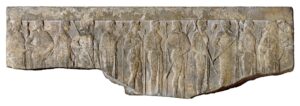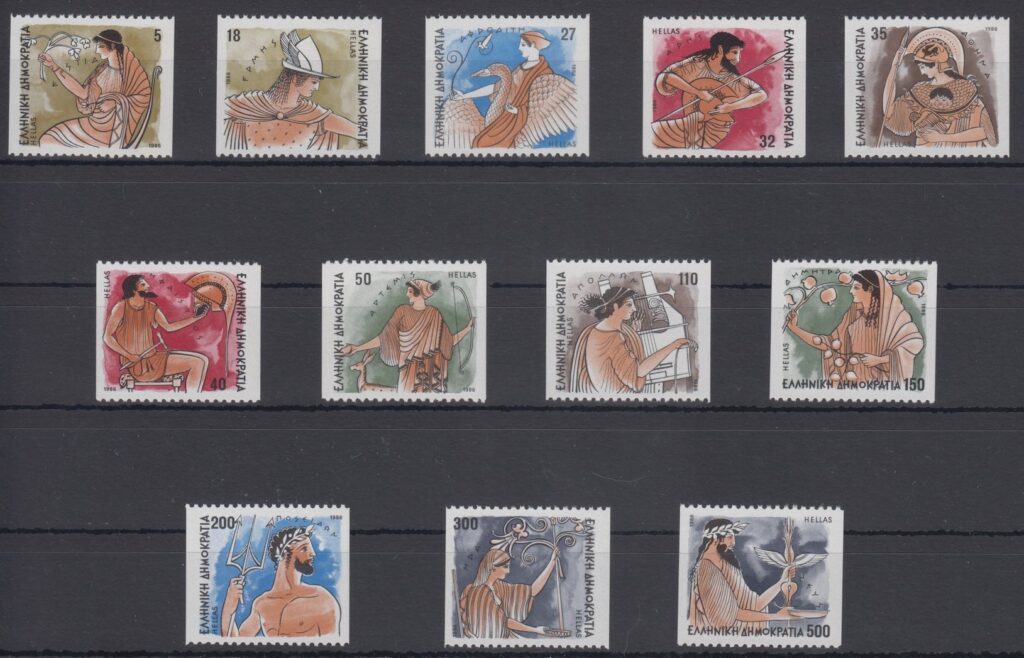
The 1986 Greek stamp series beautifully showcase the twelve Olympian gods, each represented in a unique and artistic design. These stamps not only celebrate the rich mythology of Ancient Greece but also pay homage to its enduring cultural legacy. Here is a detailed breakdown of the set:
Stamps Overview
- 5 drachmas – Hestia: Goddess of hearth and home, symbolizing domesticity and the eternal flame.
- 18 drachmas – Hermes: The messenger god, protector of travellers, merchants, and thieves.
- 27 drachmas – Aphrodite: The goddess of love, beauty, and desire, often associated with the dove.
- 32 drachmas – Ares: The fierce god of war, embodying battle and valour.
- 35 drachmas – Athena: The goddess of wisdom, strategy, and warfare, often depicted with her shield and owl.
- 40 drachmas – Hephaestus: God of fire and craftsmanship, known for his skills in forging and metalwork.
- 50 drachmas – Artemis: The goddess of the hunt, wilderness, and moon, associated with her bow and arrow.
- 110 drachmas – Apollo: God of music, arts, prophecy, and healing, depicted with his lyre.
- 150 drachmas – Demeter: Goddess of agriculture and the harvest, holding grains and fruits.
- 200 drachmas – Poseidon: The mighty god of the sea, wielding his iconic trident.
- 300 drachmas – Hera: Queen of the gods and goddess of marriage, seated with her regal air.
- 500 drachmas – Zeus: The king of the gods, ruler of the sky and thunder, holding his lightning bolt.

The Olympian Pantheon
The Olympian gods were central figures in ancient Greek religion and mythology, representing various facets of life and nature. They were called “Olympians” as they were believed to reside on Mount Olympus, the mythical abode of the gods. This set encapsulates the essence of these deities, immortalizing their influence on art, culture, and literature.
- Zeus, the ruler of all gods, presided over Mount Olympus alongside his siblings Hera, Poseidon, Demeter, and Hestia.
- The Olympians were renowned for their human-like traits—jealousy, love, rivalry, and ambition—which made their myths relatable and timeless.
- Hades, while a major deity, was typically excluded from the Olympian group as he ruled the underworld, separate from Mount Olympus.
Cultural Significance
This stamp collection highlights the immense cultural and historical importance of Greek mythology. The gods and their tales have shaped not only ancient Greek life but also modern literature, arts, and philosophy.
These stamps are a must-have for philatelists interested in mythology and art, offering a glimpse into one of history’s richest mythological traditions. Each design is a tribute to the artistic and narrative legacy of Ancient Greece, making this set a true philatelic gem.


